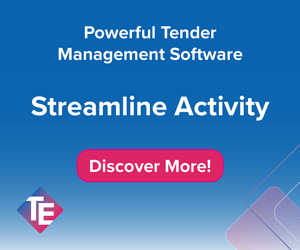Working as a bid manager in a highly specialized industry, there have been many times that I’ve entered a room and had to explain how technical and proposal professionals can work together, joining different skills and knowledge sets to build and lead successful proposal teams. There is often a knowledge gap on both sides, resulting in unclear roles and responsibilities, which can be detrimental to the proposal process as it matures. This gap can also cause breakdowns in communication where assumptions are made in lieu of understanding. Over the past few years, we have spent time as a business working out how to best bridge the gap in teams, so that everyone in the room has the same fundamental understanding of roles, responsibilities, and skills.
The key is to promote proposal teams as their own discipline and demonstrate, at all levels, that the days of proposal management being a reactive, administrative-based role are over.
- Be clear and upfront. Whenever I run a kick-off meeting, I display a roles-and-responsibilities matrix that covers the expectations for everyone on the team. It’s a chance for team members to see what I expect from them and what they can expect from me. For example, I might say that the technical bid manager has responsibility for managing the technical solution and that I, as the proposal manager, am responsible for driving our win strategy throughout the response. This matrix can be as high-level or detailed as is necessary for the opportunity, but the fundamental purpose is to allow your team to challenge it. By making the matrix interactive, you can provide a space for any concerns or questions to be raised early on before they become time-critical.
- Meet halfway. Make use of downtime by creating lunch-and-learn events with your team to share knowledge between technical and proposal specialists. If your business works across multiple sectors, ask people to come in and present a high-level briefing on what they do day in, day out. Try spending time on a project or get involved in wider office initiatives. The more you can learn about your business, the better. This should be budgeted for and measured the same way as other continuing professional development initiatives.
- Ask the stupid questions. If you reside in a world of acronyms, you may know what it’s like to get lost in a meeting. It’s fundamental to have complete clarity when leading a proposal, so ask the stupid questions, push for clear articulation, and keep a cheat sheet of discipline-specific terminology that can be passed on for future proposals. This knowledge capture can feed into a proposal bible.
- Don’t be afraid to be different. It’s important to promote the role of proposal professionals and make clear distinctions. You might do this by bringing technical employees into a proposal team for a day and talking through what a typical proposal looks like. This activity could also form part of an internship or graduate scheme, rotating individuals into a live opportunity. The key is to promote proposal teams as their own discipline and demonstrate, at all levels, that the days of proposal management being a reactive, administrative-based role are over.
As our profession evolves, so does the need to share knowledge with and up-skill our own teams, as well as colleagues outside of proposals. By developing the right culture and harnessing lessons learned, we build the knowledge to run successful proposals. Hopefully some of the techniques mentioned above will help you bridge the gap with your wider business and, thus, deliver a more successful proposal experience.
Samantha Burns is the bid manager at AECOM, a global company that designs, builds, finances, and operates critical infrastructure assets for governments, businesses, and organizations, and she works in Birmingham, U.K. She can be reached at sam.burns2@aecom.com.



Join the Conversation